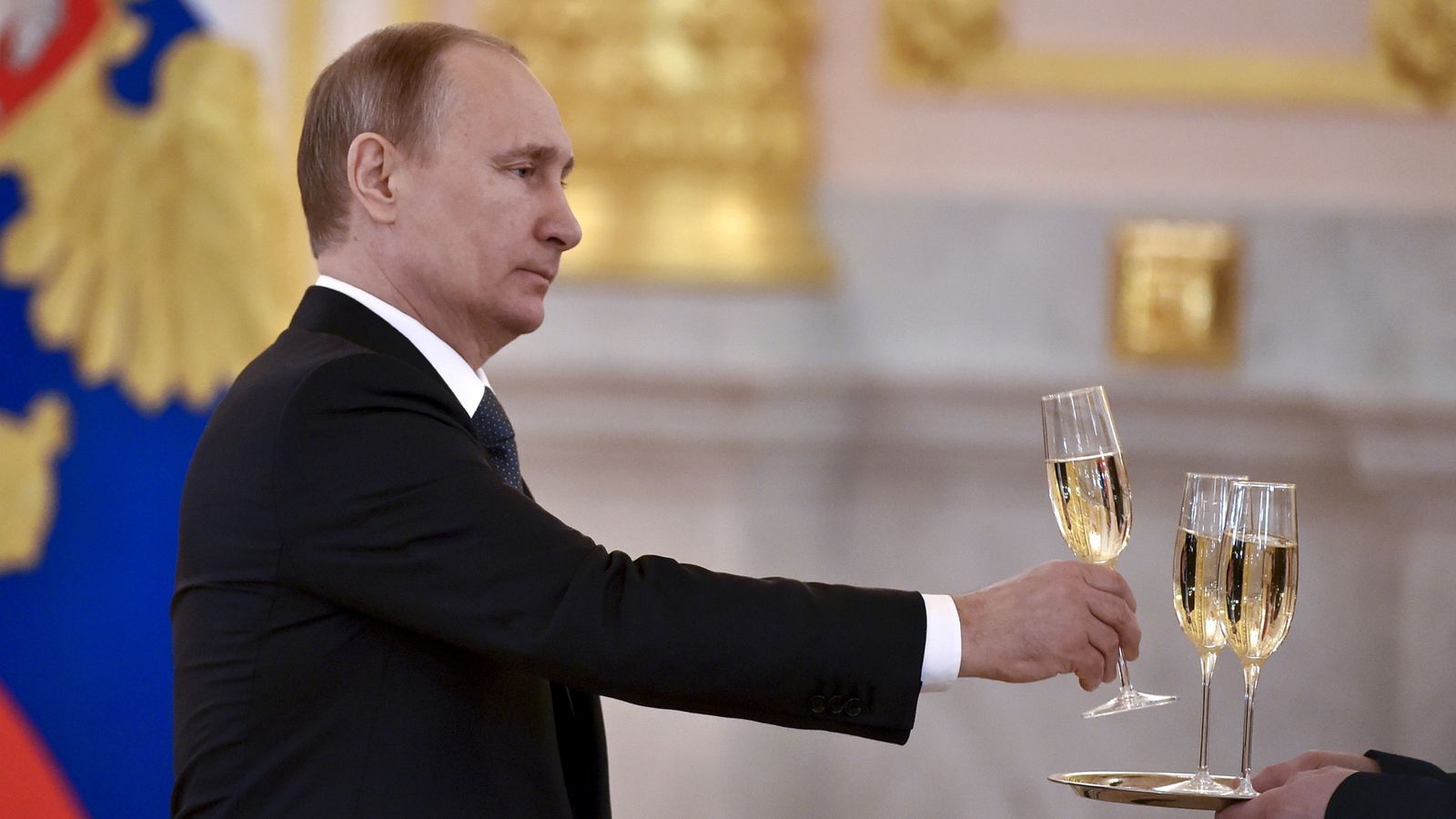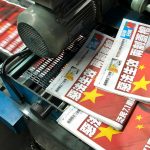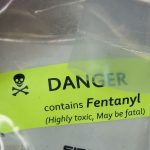Champagne is one of the most protected products in the drinks industry – but a new law signed by Vladimir Putin makes the counter-claim that the word can be used only for Russian wine.
The name is heavily protected and legally defended – meaning to be called Champagne it must come from the region of France with that name and is made under certain regulations.
But now a new Russian law has made the counter-claim that the word – “shampanskoye” in Russian – can only be used for Russian-made sparkling wine.
The law, signed by President Vladimir Putin on Friday, requires all foreign producers of sparkling wine to describe their product as such on the back of the bottle – though not on the front – while makers of Russian bubbly may continue to use that term alone.
The French champagne industry group has called on its members to halt all shipments to Russia and said the name “champagne” had legal protection in 120 countries.
“These provisions lead to a temporary suspension of deliveries of products to assess the impact of this new law,” Moet-Hennessy spokeswoman Anne Catherine Grimal said, according to state news agency RIA-Novosti.
But Reuters reported that on Sunday Moet-Hennessy, the LVMH-owned French maker of Veuve Clicquot and Dom Perignon champagnes, said it would begin adding the designation “sparkling wine” to the back of bottles destined for Russia to comply with the law.
Since Soviet times, champagne has been used as a generic term for a wide range of sparkling wines in Russia, some of which contradict champagne’s luxury image by selling for as little as 150 roubles (£1.50) a bottle
“The Champagne Committee deplores the fact that this legislation does not ensure that Russian consumers have clear and transparent information about the origins and characteristics of wine,” Maxime Toubart and Jean-Marie Barillere, the group’s co-presidents, said in a statement.
French Trade Minister Franck Riester said he was tracking the new Russian law closely, and was in contact with the wine
industry and France’s European partners.
“We will unfailingly support our producers and French excellence,” he said on Twitter.
Even the head of one of Russia’s major winemakers thinks the law goes too far.
“For me, there is no doubt that real champagne comes from the Champagne region in France,” Pavel Titov, president of Abrau-Dyurso, told RIA-Novosti.
“It is very important to protect Russian wines in our market and provide them with comprehensive patronage. But the legislative measures taken must be reasonable and not contradict common sense.”






















